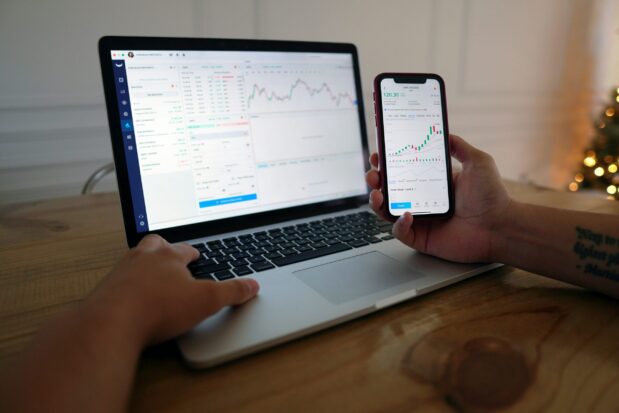Today, I will explain the following website. (AI-generated)
NY市場サマリー(7日)FOMC受けドル下落、利回り低下 S&Pとナスダック続伸(ロイター) – Yahoo!ニュース
Contents
Understanding the Impact of FOMC Decisions on Forex Trading
The Federal Open Market Committee (FOMC) plays a crucial role in shaping the economic landscape, and its decisions have a direct impact on Forex trading, particularly in the USD/JPY currency pair. When the FOMC decides to cut interest rates, as it did recently, it often leads to a depreciation of the US dollar because investors seek higher returns in other currencies. This dynamic was observed as the dollar softened, following the FOMC’s decision not to signal a pause in future rate cuts.
What the FOMC Decision Means for the USD/JPY Pair
The USD/JPY pair saw a significant decline of 1.05% to 153.01 yen after the FOMC’s decision to lower rates by 0.25%. The yen, while currently pressured by the interest rate differential between Japan and the United States, may face upward pressure if the Bank of Japan is pushed towards a rate hike in the near future. Forex traders should closely monitor these developments as they can affect the value of both currencies and their trading strategies.
How Forex Traders Can Interpret Federal Reserve Signals
Forex traders must pay attention to the nuances of FOMC statements and press conferences. The lack of indication from Chairman Powell about pausing rate cuts suggests that the Federal Reserve may continue to lower rates until they are significantly below 4%. This unexpected stance, given the strength of economic indicators, can influence trader expectations and market movements.
Exploring the Relationship Between Interest Rates and Currency Values
Interest rates are a fundamental factor in currency valuation. Lower interest rates tend to decrease the value of a currency as they reduce the return on investments denominated in that currency. Conversely, higher rates can increase a currency’s value. The recent FOMC decision to cut rates has led to a decrease in the US dollar index and bond yields, highlighting the inverse relationship between interest rates and currency value.
Strategies for Forex Traders in a Volatile Market
In a market that’s influenced by central bank decisions and economic indicators, Forex traders need to employ strategies that can adapt to volatility. Understanding the impact of interest rates, economic data releases, and geopolitical events can help traders make informed decisions and manage risk effectively.
Assessing the Impact of Economic Indicators on Forex Trading
Economic indicators such as employment data, inflation rates, and GDP growth can provide insights into a country’s economic health and influence Forex markets. Traders should analyze these indicators to gauge potential movements in currency pairs and adjust their trading strategies accordingly.
Adapting to Sudden Market Shifts: Tips for Forex Traders
Market shifts can occur rapidly, especially after major economic announcements or geopolitical events. Traders should stay informed, be prepared to adjust their positions quickly, and use risk management tools like stop-loss orders to protect their investments.
Understanding and Leveraging Currency Correlations
Currencies often move in relation to one another, and understanding these correlations can provide additional insight for trading strategies. For example, when the USD strengthens or weakens, it can have a corresponding impact on other currency pairs. Traders can leverage these correlations to predict market movements and enhance their trading tactics.
Investing in Forex Amidst Political and Economic Changes
Political events such as presidential elections can introduce uncertainty and volatility in Forex markets. Traders must be aware of the potential impact of these events and central bank policies to navigate the market effectively.
How Presidential Elections Influence Forex Markets
Presidential elections can lead to significant shifts in government policies, which in turn can affect economic conditions and Forex markets. For instance, the policies expected from President Trump’s re-election led to a phenomenon known as the “Trump Trade,” impacting the dollar’s value. However, positions were unwound the following day, highlighting the need for traders to be vigilant during such times.
The Role of Central Banks in Shaping Forex Dynamics
Central banks like the Federal Reserve and the Bank of Japan play a pivotal role in determining interest rates, which directly influence currency values. Forex traders should monitor central bank actions and statements to anticipate potential market movements.
Deciphering Market Sentiment in the Wake of Political Events
Market sentiment can be swayed by political events, leading to rapid changes in currency values. Traders must be adept at interpreting market sentiment and adjusting their strategies to align with the prevailing mood of the market.













